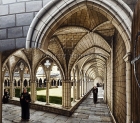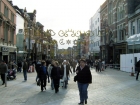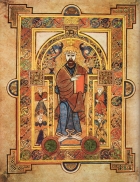Local Study
The importance of local history for developing a sense of place and identity is emphasised by the National Curriculum. The local landscape and buildings can often reveal a great deal about the use of land and the type of people who lived there in the past. Buildings and landscape can reveal how long a heritage the place has had. Monuments and local heritage or parish records can highlight individual local heroes or provide a window into the lives of ordinary local people in times gone by. How similar or different were their lives? Often, the local picture can also help to reveal the national or international picture.
Sort by:
Date (Newest first) | Title A-Z
Show:
All |
Articles |
Podcasts |
Multipage Articles
-

Teaching black British history through local archives
ArticleClick to view -

Teaching local history in primary schools: learning about effective practice
ArticleClick to view -

Teaching local history through a family
ArticleClick to view -

Teaching ‘changes within living memory’: making the most of your school
ArticleClick to view -

The 2014 History National Curriculum: how to get the best from heritage
ArticleClick to view -

The British Association for Local History (BALH)
ArticleClick to view -

The History around us: Local history
ArticleClick to view -

The creative history curriculum
ArticleClick to view -

The history teacher's craft: Doing local History through the eyes of W. G. Hoskins
ArticleClick to view -

Time and Place; Using a Local Historical Site with Key Stage 2 and 3
Multipage ArticleClick to view -

Trees
ArticleClick to view -

Urban spaces: inner-city Leeds
ArticleClick to view -

Using Local Buildings
ArticleClick to view -

Using a house for your local history study
ArticleClick to view -

Using a local historical figure as a stimulus for history in the English National Curriculum
ArticleClick to view -

Using cemeteries as a local history resource
ArticleClick to view -

Using classic fiction to support the study of childhood in Victorian times
ArticleClick to view -

Using museums, libraries and art galleries
ArticleClick to view -

Using oral history in the classroom
Multipage ArticleClick to view -

Using original sources
ArticleClick to view

